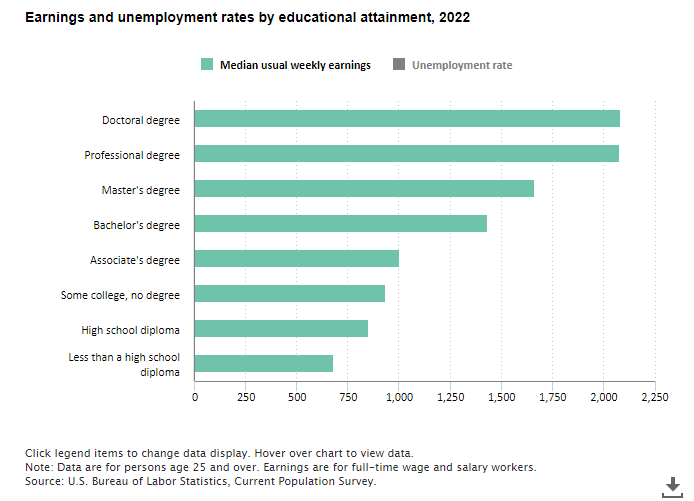
“Should I get a master’s degree?” It’s a question almost as contentious as whether the chicken or the egg came first, especially if you’re already established in your career. According to the National Center for Education Statistics, master’s degrees conferred in the United States increased by 19% in 2020-2021 versus 2010-2011. View the chart from the NCES below. To read the full report, visit nces.ed.gov.
If you find yourself pondering a return to school, weigh the decision with these four questions:
What do you hope to gain by attaining a master’s degree?
Are you looking to advance your career, move to another industry, or find personal fulfillment? Pursuing advanced education can be a significant investment of time, energy, and finances. Start by making a list of pros, cons, and challenges, then take note of anticipated changes to your lifestyle and career.
Is graduate school the best option to achieve your goals?
While master’s degrees have impressive benefits for some career fields, opportunities to expand your education with certifications, credentials, and licenses are endless. Check if your company covers registration costs for advanced training or certifications. Online professional development courses offer similar advantages to formal education with less time commitment and expense. Evaluate whether existing professional development courses would fill the gap of a master’s degree.
What financial benefit is realistic to anticipate?
A common motivator behind attaining a master’s degree is the anticipated financial benefit. Research from the U.S. Bureau of Labor Statistics shows that average median weekly earnings increase with each degree attained.

(Education pays, 2022,” Career Outlook, U.S. Bureau of Labor Statistics, May 2023.)
Before deciding on graduate school, research if your current job market is conducive to your salary expectations and how much of a raise is reasonable to expect in your field. Consider whether your current employer will account for your education level in your salary, or if you will be looking for employment elsewhere to benefit from a raise. Also examine options for funding graduate school, such as grants, scholarships, fellowships, and tuition assistance.
How will attaining a master’s degree impact you professionally, for better or worse?
A key component of considering a mid-career master’s degree is determining if it will help or hinder your career. Should you choose to quit your job to focus on your studies, how will you approach your job search after graduation? If you plan to continue working, how will you balance work and graduate school without compromising either?
If a master’s degree would offer a clear path to a higher leadership role at your company or if you’re looking to break into a new industry that values this level of education, it might be a good time to get started. However, would you be content to attain your master’s degree if it meant no career advancement or salary increase? As the saying goes, hope for the best and plan for the worst.
Are you considering a master’s degree at this point in your career? Let us know why or why not in the comment section below!

2 comments
The uptick in master’s degree seeking enrollees for 2020-2021 is no surprise due to the pandemic (layoffs and people seeking other opportunities), so it will be interesting to see if an upward trend continues. Deciding ahead of time your goals for getting the degree is great advice, as is your “even with no raise, would you still get it?” question. While advancement or career change may be a major motivation, I think having a intrinsic interest in the subject, in intellectual growth, and in the expanded network of relationships may be even greater drivers of success in a graduate degree program.
Great points, Mark! Thank you for sharing. I agree; it will be interesting to watch for continued trends in conferred master’s degrees.